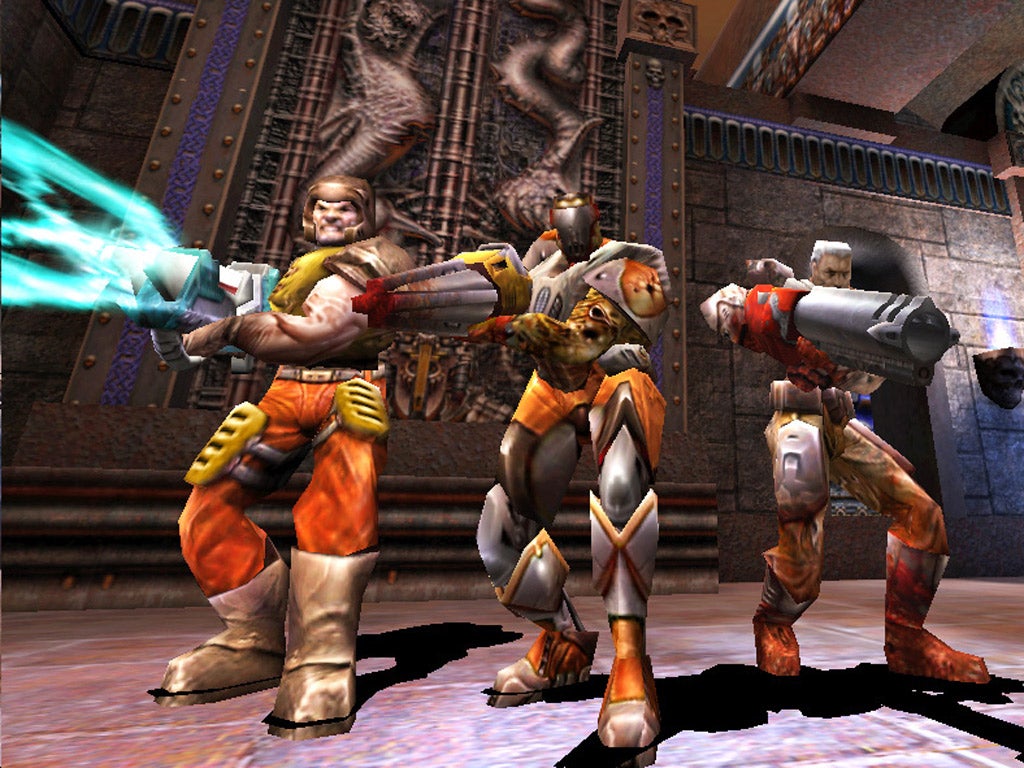Did AI robots from Quake III Arena video game bring about world peace?

Your support helps us to tell the story
From reproductive rights to climate change to Big Tech, The Independent is on the ground when the story is developing. Whether it's investigating the financials of Elon Musk's pro-Trump PAC or producing our latest documentary, 'The A Word', which shines a light on the American women fighting for reproductive rights, we know how important it is to parse out the facts from the messaging.
At such a critical moment in US history, we need reporters on the ground. Your donation allows us to keep sending journalists to speak to both sides of the story.
The Independent is trusted by Americans across the entire political spectrum. And unlike many other quality news outlets, we choose not to lock Americans out of our reporting and analysis with paywalls. We believe quality journalism should be available to everyone, paid for by those who can afford it.
Your support makes all the difference.Guns, so one line of thinking goes, do not kill people. Death usually comes when the trigger is pulled by a living being so people, therefore, kill people. It may be an over-simplified way of thinking (and one that the National Rifle Association seems to love) but could the same argument be put forward for video games? Are certain games inherently violent or do they only become bloodbaths once humans get hold of the controller?
The first-person shooter Quake III Arena has often been thought of a violent game. It launched in 1999 on the PC and forgoes any sort of plot. It simulates a multiplayer experience instead, so a single player will be pitted against computer-controlled opponents in a battle to the death.
These “bots” are clever. They don’t just walk up and down in a set pattern. They learn. They figure how best to annihilate your virtual self, understanding how someone plays before conjuring up fresh tactics to outwit people.
One player was intrigued by such artificial intelligence and decided to test it. In 2007, he set up a Quake III Arena server and had 16 bots face each other again and again to see what would happen. Four years later, the gamer returned.
He discovered that, far from witnessing mass slaughter, the bots stood still and faced each other in an apparent ceasefire. None had emerged as an enraged, all-powerful terminator and killed the rest. Had they learnt that the best way to survive was to stop killing each other?
The player who started a forum thread with his findings concluded: “Maybe they have learned that the best technique to survive is to make a peace and to stand there for an eternity, waiting for a purpose or salvation.”
So is this a Skynet in the making or is it, as The New Statesman’s Alex Hern hypothesised on Twitter, a coding flaw in a neural network that was found four years too late? We asked Graeme Devine, the Glasweigan coder who designed Quake III Arena. “Could bots eventually just stand around?” he asks. “Yes, but probably due to a float error. As floating point numbers grow, their accuracy decreases so over time their accuracy becomes meaningless.”
That seemed to halt them, except when the player entered the arena. He shot at one of the bots, sending each dashing for their weapons and killing him. But they didn’t subsequently turn on each other.
The player said the bots had achieved something we could not: world peace.
But Devine is unsure. “The bots may not have found peace, they may be blind,” he says. But let’s not shoot down a good yarn, eh?
Join our commenting forum
Join thought-provoking conversations, follow other Independent readers and see their replies
Comments